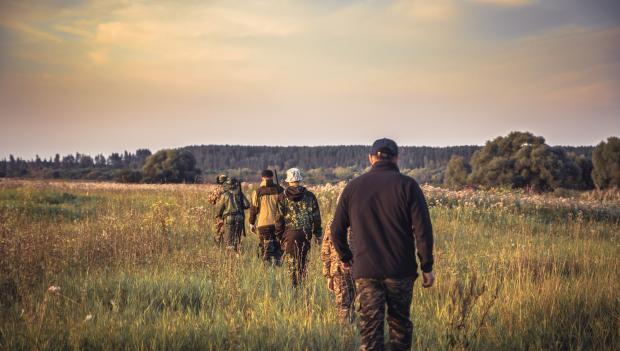
Did you know? Guided hunting trips aren’t just for novice hunters; experienced hunters often choose to have a guide for the insight, camaraderie, and logistical support that an outfitter provides. Read on to learn more about guided hunts and whether going with a guide is the right move for your next hunting trip.
What Is a Guided Hunt?
A guided hunt is led by a local hunter who is familiar with the animals and topography of a certain area and serves as a guide for a specific trip. As a participant, you would pay a fee for the guide. In return, the guide provides gear, planning, logistical support, and insight into the local game and hunting regulations.
The logistics and amenities provided by a guided hunt can vary considerably. At minimum, most outfitters provide a place to hunt, usually on private land. Some hunts do venture into national parks, or in certain state parks like Glen Elder State Park, KS. Basic gear like stands may also be provided in addition to advice and instructions to improve the hunters’ success rate.
Some hunting outfitters also offer housing, travel assistance, hunting licensing arrangements, and help harvesting the animal.
Recommended: Hunting Mentor Opportunities
Why a Guided Hunt?
Guided hunts are great for new hunters or hunters with little experience planning their own trips. They are also great when hunting a new animal (especially big game), or hunting in a different region (especially in a different state with different regulations). For example, you may have done plenty of migratory bird hunting in Massachusetts, but want to try your hand at elk hunting in Minnesota. This requires a different skill set and different hunting licensing requirements.
Self-guided hunting trips require more preparation than guided hunting expeditions. On the other hand, self-guided hunts save money and are also very gratifying due to the self-reliance required to hunt on your own.
Deciding on a Guided Hunt
If you have decided that a guided hunt is the best option for your hunting trip, there are a few very important questions to ask the outfitter:
- Are necessities like food, water, shelter, and transportation included in your contract? You’ll want to make sure you know what is and isn’t included.
- Can I realistically do this hunt? The conditions of the hunt can be challenging and tiring. It may involve days of walking, camping, and lugging gear. Be realistic with yourself about what you can do, and what you feel comfortable doing.
- Read outfitter reviews. A good outfitter will have references from previous clients who can testify to their skills and personability. The outfitter should also have information on what types of animals and how many have been taken on recent expeditions.
- What are the costs? Most guided hunts come in around $3,000-7,000. Costs depend on the animal you are hunting, the logistics of your travel, the type of accommodations provided, and any additional services. Don’t forget to account for tipping the guide staff as well (tip a minimum of 10 percent of your total trip costs).
Deciding on a Self-Guided Hunt
If you are looking to plan a hunt on your own, below are some basic steps you’ll need to take:
- Decide on when, where and what you are going to hunt.
- Apply for a hunting license in the state where you will be hunting. You may need to apply for a specific hunting license, rather than a general one, to cover the type of animal, zone, dates, and method of take.
- Search for your preferred type of accommodation in the area of your hunt, such as tent camping, RVing, cabins or lodge. (You can search ReserveAmerica for camping, RV hookups, and cabin options.)
- Research the area of your hunt to help ensure your hunt is successful. ReserveAmerica also has a whole section of hunting and fishing articles you can use as a resource to improve your hunting know-how.
- Be sure to read the state’s hunting regulations and hunt within the parameters of your hunting license.
- Purchase and pack the gear you will need to keep yourself warm, dry, and safe.
Recommended: Winter Hunting Trips for 2019
The Importance of the Right Hunting License
Regardless of whether you are hunting on your own or using a guide, getting the right hunting license is a must. Be sure to familiarize yourself with the hunting regulations and requirements of the state where you will be hunting.
Many states require hunter education courses and an application and/or lottery system for animal-specific licenses, particularly big game. Your hunting license may have location specifications — that is, where you can legally hunt — as in the case of zoning regulations in Colorado. Likewise, there will be timing requirements, or which weeks of the year you can hunt.
All of these licensing requirements will of course factor into your trip coordination, so be sure to give yourself plenty of time for planning. If an outfitter is handling your licensing acquisition, follow up with them periodically to check in.
Recommended: How Much Is a Hunting License and How to Get a Hunting License?